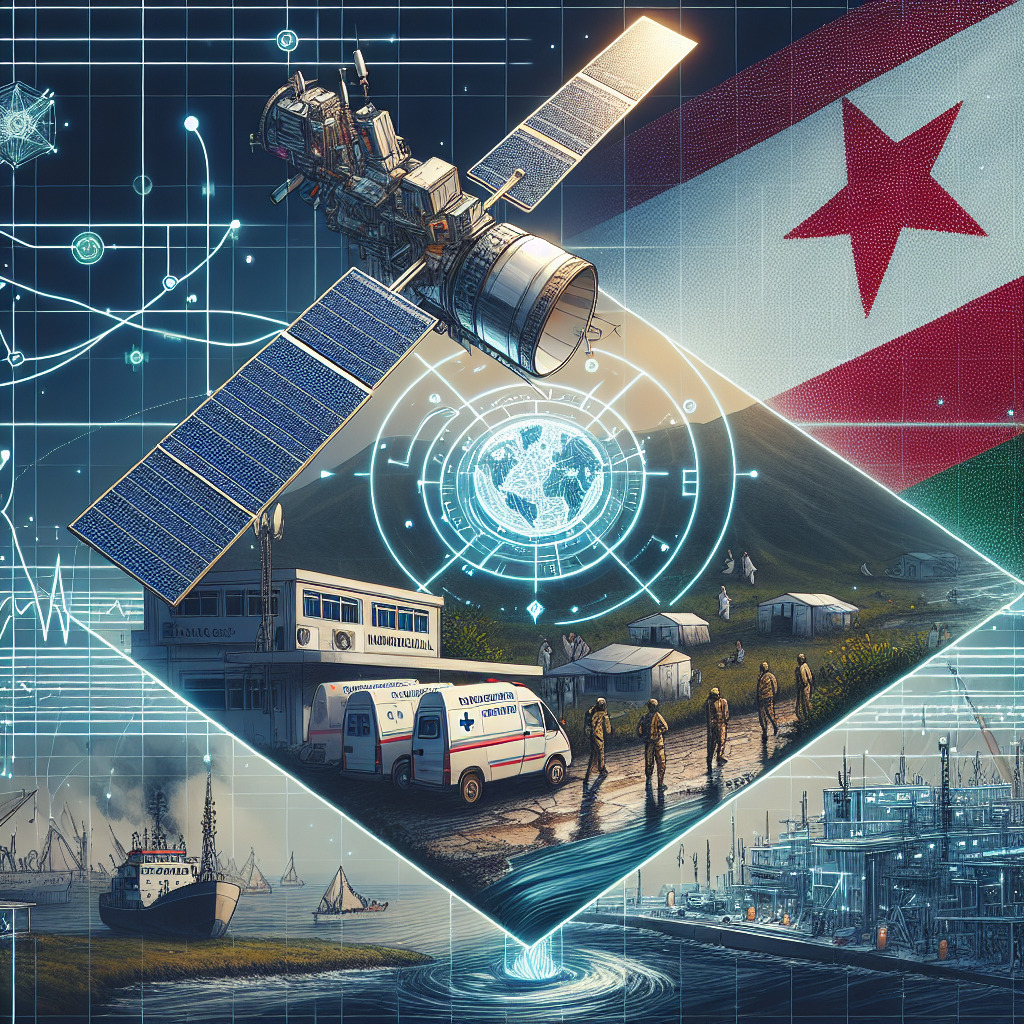Key Takeaways
Introduction: A Strategic Shift in Gaza
Israel’s recent decision to permit Elon Musk’s Starlink to provide satellite internet service in Gaza signifies a notable strategic pivot. The approval focuses on the Rafah hospital, a facility built by the United Arab Emirates (UAE), and comes with potential geopolitical ramifications. This move represents a delicate balance between addressing humanitarian needs and ensuring security in the troubled region.
Background: Starlink’s Role in Gaza
Starlink, part of the innovative technology landscape crafted by Elon Musk, has extended its internet services to Gaza’s Rafah field hospital. This initiative gained approval from the Israeli Communications Ministry in February, reflecting a change from the earlier policy that restricted Starlink’s access due to security concerns.
Previously, Israel’s stance was firmly against allowing Starlink in Gaza, driven by fears that Hamas could exploit the technology for malicious purposes. Concerns included the possibility of Hamas using the service to transmit sensitive information, orchestrate attacks, and spread propaganda.
Addressing Security Concerns
The shift to allowing Starlink’s presence in Gaza did not come lightly. Extensive deliberations took place to ensure that the infrastructure would primarily serve humanitarian purposes under rigorous oversight. Israel has set stringent conditions, ensuring that satellite internet is securely managed and restricted to approved locations such as hospitals. This controlled access aims to mitigate any potential misuse by Hamas while providing essential connectivity for critical infrastructure.
The Role of the UAE
The involvement of the UAE in Gaza’s reconstruction efforts represents a significant strategic development. The UAE’s participation suggests a more extensive program to rebuild Gaza, encompassing health, education, and communication sectors. This could be part of a broader “Marshall Plan” strategy for Gaza’s post-Hamas reconstruction.
By leveraging their experience from the Abraham Accords, the UAE could spearhead efforts to rebuild vital infrastructures in Gaza, fostering stability and growth while ensuring humanitarian aid benefits civilians rather than military factions. Moreover, their capacity to influence educational curriculums and cultural attitudes may help foster a more moderate and progressive environment in Gaza.
Humanitarian and Geopolitical Implications
Israel’s cooperation with the UAE in Gaza aligns with broader regional interests, particularly those of moderate Sunni countries opposing Iran’s influence. The UAE’s involvement could potentially reshape Gaza’s geopolitical landscape, diminishing the influence of extremist groups and laying the groundwork for long-term peace and development.
One of the more ambitious aspects of this initiative is improving connectivity and communication within Gaza, ensuring that hospitals and other critical services remain operational, even amidst conflict. This approach highlights the dual benefits of technology in both humanitarian and strategic contexts.
Future Outlook: Navigating Opportunities and Challenges
The future success of this strategy depends heavily on the definitive defeat of Hamas. As long as Hamas retains power in Gaza, any efforts towards reconstruction and cultural shifts face significant resistance. However, if regional and local efforts succeed in diminishing Hamas’s hold, the potential for a transformed Gaza becomes tangible.
The ongoing relationship between Israel and Starlink may extend beyond immediate humanitarian efforts. Reliable internet connectivity during conflicts can provide critical support for both operational security and civilian welfare.
Beneficial Impact on Civilian Life
The introduction of Starlink’s satellite internet services in Gaza carries substantial potential for improving the daily lives of civilians. Enhanced communication infrastructure can facilitate better access to information, education, and healthcare services, contributing to overall quality of life. Furthermore, stable and high-speed internet connectivity can foster economic opportunities and innovation in a region where such prospects have been historically stifed.
Conclusion
Israel’s decision to enable Starlink internet services in Gaza underscores a nuanced balance between security considerations, humanitarian needs, and broader geopolitical strategies. By imposing strict controls on usage while enabling crucial technological advancements, Israel and its allies aim to foster stability and growth in Gaza.
The role of the UAE, combined with advanced technologies like Starlink, represents a promising avenue for Gaza’s reconstruction and long-term peace. As this initiative progresses, its success will depend on consistent collaboration between regional players, technological providers, and international stakeholders dedicated to ensuring humanitarian aid reaches those in need without compromising security.
In this intricate dance of diplomacy, technology, and security, Starlink’s presence in Gaza could exemplify the potential for technology to serve dual purposes, offering both strategic advantages and essential humanitarian support in conflict zones.




